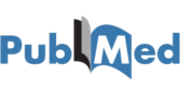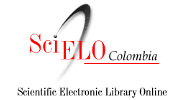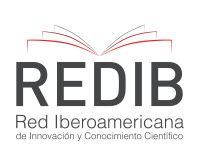Isoflavonas en ginecología, terapia no convencional
DOI:
https://doi.org/10.18597/rcog.592Palabras clave:
polifenoles, fitoestrógenos, isoflavonas, genisteína, daidzeína, ipriflavona, SERMResumen
La soya y sus componentes las isoflavonas como la genisteína, daidzeína e ipriflavona son comercializados hoy en día por quienes ejercen la medicina alternativa con fines de promoción y prevención de enfermedades neoplásicas, osteoporosis, asociadas al climaterio y cardiovasculares. Diferentes publicaciones médicas presentan estudios realizados con el fin de confirmar sus beneficios farmacológicos a la luz del método científico. Aunque hay clara evidencia de sus efectos al interactuar con receptores esteroideos en el organismo humano, reconocidos por entidades como la Food and Drugs Administration de Estados Unidos, aún faltan estudios controlados para determinar su real impacto terapéutico; se deben mejorar los sesgos en las poblaciones analizadas y realizar más estudios dedicados a cada uno de los componentes de las isoflavonas por separado con el propósito de valorar su propio espectro terapéutico.Biografía del autor/a
Carlos Alberto Bonilla
Referencias bibliográficas
Taylor M. Alternative medicine and the perimenopause: An evidence-based review. Obstet Gynecol Clin North Am 2002;29:555-73.
Fitzpatrick LA. Phytoestrogens—mechanism of action and effect on bone markers and bone mineral density. Endocrinol Metab Clin North Am 2003;32:233-52.
Gass ML, Taylor MB. Alternatives for women through menopause. Am J Obstet Gynecol 2001;185:S47-56.
Sidani SM, Campbell J. Gynecology: select topics. Prim Care 2002;29:297-321.
Steyer TE. Complementary and alternative medicine: a primer. Fam Pract Manag 2001;8:37-42.
Murkies AL, Wilcox G, Davis SR. Clinical review 92; phytoestrogens. J Clin Endocrinol Metab 1998;83:297-303.
Head K. In: Pizzorno JE Jr, Murray M, eds. Textbook of Natural Medicine. Soy isoflavones and other constituents. 2nd ed. New York: Churchill Livingstone; 1999; p. 953-65.
Adlercreutz H. Phyto-oestrogens and Western diseases. Ann Med 1997;29:95-120.
Alvernia S, Palacios S. Fitoestrógenos y la salud de la mujer. Revista Colombiana de Menopausia 2000;6(1).
Knight DC, Eden JA. A review of the clinical effects of phytoestrogens. Obstet Gynecol 1996;87:897-904.
Arjmandi BH, Khalil DA, Smith BJ, Lucas EA, Juma S, Payton ME, et al. Soy protein has a greater effect on bone in postmenopausal women not on hormone replacement therapy, as evidenced by reducing bone resorption and urinary calcium excretion. J Clin Endocrinol Metab 2003;88:1048-54.
Sathyamoorthy N, Wang TT, Phang JM. Stimulation of pS2 expression by diet derived compounds. Cancer Res 1994;54:957-61.
Whitten PL, Lewis C, Russell E, Naftolin F. Potential adverse effects of phytoestrogens. J Nutr 1995;125:771S-6S.
Baird DD, Umbach DM, Lansdell L, Hughes CL, Setchell KD, Weinburg CR, et al. Dietary intervention study to assess estrogenicity of dietary soy among postmenopausal women. J Clin Endocrinol Metab 1995;5:1685-90.
Lu LJ, Anderson KE, Grady JJ, Nagamani M. Effects of soya consumption for one month on steroid hormones in premenopausal women: implications for breast cancer risk reduction. Cancer Epidemiol Biomarkers Prev 1996;5:63-70.
Cassidy AR, Bingham S, Setchell KD. Biological effects of a diet of soy protein rich in isoflavones on the menstrual cycle of premenopausal women. Am J Clin Nutr 1994;60:333-40.
Petrakis NL, Barnes S, King EB, Lowenstain J, Wiencke J, Lee MM, et al. Stimulatory influence of soy protein isolate on breast secretion in pre- and postmenopausal women. Cancer Epidemiol Biomarkers Prev 1996;5:785-94.
Lu LJ, Anderson KE, Grady JJ, Nagamani M. Effects of an Isoflavone-free soy diet on ovarian hormones in premenopausal women. J Clin Endocrinol Metab 2001;86:3045-52.
Pino AM, Valladares LE, Palma MA, Mancilla AM, Yanez M, Albala C. Dietary isoflavones affect sex hormone-binding globulin levels in postmenopausal women. J Clin Endocrinol Metab 2000;85:2797-800.
Cline JM, Paschold JC, Anthony MS, Obasanjo IO, Adams MR. Effects of hormonal therapies and dietary soy phytoestrogens on vaginal cytology in surgically postmenopausal macaques. Fertil Steril 1996;65:1031-5.
Tansey G, Hughes CL Jr, Cline JM, Krummer A, Walmer DK, Shmoltzer S. Effects of dietary soybean estrogens on the reproductive tract in female rats. Proc Soc Exp Biol Med 1998;217:340-4.
Nieman LK. Management of surgically hypogonadal patients unable to take sex hormone replacement therapy. Endocrinol Metab Clin North Am 2003;32:325-36.
Moyad MA. MPH The placebo effect and randomized trials: analysis of alternative medicine. Urol Clin 2002;29:212-19.
Washburn S, Burke GL, Morgan T, Anthony M. Effect of soy protein supplementation on serum lipoproteins, blood pressure, and menopausal symptoms in perimenopausal women. Menopause 1999;6:7-13.
Albertazzi P, Pansini F, Bottazzi M, Bonaccorsi G, De Aloysio D, Morton MS. Dietary soy supplementation and phytoestrogen levels. Obstet Gynecol 1999;94:229-31.
Murkies AL, Lombard C, Strauss BJ, Wilcox G, Burger HG, Morton MS. Dietary flour supplementation decreases post-menopausal hot flushes: effect of soy and wheat. Maturitas 1995;21:189-95.
Knight DC, Howes JB, Eden JA, Howes LG. Effects on menopausal symptoms and acceptability of isoflavone-containing soy powder dietary supplementation. Climacteric 2001;4:13-8.
Loprinzi CL, Barton DB, Rhodes D. Management of hot flashes in breast-cancer survivors. Lancet Oncol 2001;2:256-62.
Thiedke CC. Nonhormonal pharmacologic and complementary treatment of menopause. Clin Fam Prac 2002;4:119-22.
Morelli V, Naquin C. Alternative therapies for traditional disease states: menopause. Am Fam Physician 2002;66:129-34.
Dewell A, Hollenbeck CB, Brucen B. The effects of soy-derived phytoestrogens on serum lipids and lipoproteins in moderately hypercholesterolemic postmenopausal women. J Clin Endocrinol Metab 2002:87:118-21.
Mei J, Yeung S, Kung AW. High dietary phytoestrogen intake is associated with higher bone mineral density in postmenopausal but not premenopausal women. J Clin Endocrinol Metab 2001;86:5217-21.
Baird DD, Umbach DM, Lansdell L, Hughes CL, Setchell KD, Weinberg CR, et al. Dietary intervention study to assess estrogenicity of dietary soy, among postmenopausal women. J Clin Endocrinol Metab 1995;80:1685-90.
Mishra S, Dickerson V, Najm W. Phytoestrogens and breast cancer prevention: what is the evidence. Am J Obstet Gynecol 2003;188:S66-70.
Barnes S, Peterson TG, Coward L. Rationale for the use of genistein-containing soy matrices in chemoprevention trials for breast and prostate cancer. J Cell Biochem Suppl 1995;22:181-7.
Wei H, Bowen R, Cai Q, Barnes S, Wang Y. Antioxidant and antipromotional effects of the soybean isoflavone genistein. Proc Soc Exp Biol Med 1995;208:124-30.
Fotsis T, Pepper M, Adlercreutz H, Fleischmann G, Hase T, Montesano R, et al. Genistein, a dietary-derived inhibitor of in vitro angiogenesis. Proc Natl Acad Sci U S A 1993;90:2690-4.
Martin ME, Haourigui M, Pelissero C, Benassayag C, Nunez EA. Interactions between phytoestrogens and human sex steroid binding protein. Life Sci 1996;58:429-36.
Wu AH, Ziegler RG, Horn-Ross PL, Nomura AM, West DW, Kolonel LN. Tofu and risk of breast cancer in Asian-Americans. Cancer Epidemiol Biomarkers Prev 1996;5:901-6.
Hale GE, Hughes CL, Cline JM. Endometrial cancer: hormonal factors, the perimenopausal "window of risk," and isoflavones. J Clin Endocrinol Metab 2002;87:3-15.
Squadrito F, Altavilla D, Crisafulli A, Saitta A, Cucinotta D, Morabito N, et al. Effect of genistein on endothelial function in postmenopausal women: a randomized, double-blind, controlled study. Am J Med 2003;114:470-6.
Kayisli UA, Aksu CA, Berkkanoglu M, Arici A. Estrogenicity of isoflavones on human endometrial stromal and glandular cells. J Clin Endocrinol Metab 2002;87:5539-44.
The role of isoflavones in menopausal health: consensus opinion of The North American Menopause Society. Menopause 2000;7:215-29.
Ernst E. The risk-benefit profile of commonly used herbal therapies: Ginkgo, St. John’s Wort, Ginseng, Echinacea, Saw Palmetto, and Kava. Ann Intern Med 2002;136:42-53.
Cómo citar
Descargas
Descargas
Publicado
Número
Sección
| Estadísticas de artículo | |
|---|---|
| Vistas de resúmenes | |
| Vistas de PDF | |
| Descargas de PDF | |
| Vistas de HTML | |
| Otras vistas | |
















